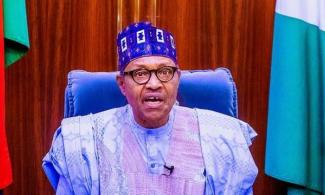
The proposed expenses for general travels and transport amount to N2,495,540,656.
President Muhammadu Buhari’s government has budgeted the sum of N297 million for the National Health Insurance Scheme (NHIS) while it plans to spend about N2.5 billion on the President's local and foreign trips.
A breakdown of the executive budget proposal for the 2023 fiscal year which the Nigerian President presented to the joint session of the National Assembly on Friday, showed that the sum of N297,219,120 was allocated for the NHIS while the sum of N862,076,448 was budgeted for President’s local travels and transport.
Further analysis of the proposed budget showed that the government plans to spend the sum of N1,633,464,208 on the President's foreign trips. The proposed expenses for general travels and transport amount to N2,495,540,656.
It therefore means that the government plans to spend approximately N2.5 billion on the President’s local and foreign trips while the total budget for the National Health Insurance Scheme for all Nigerians is N297.2 million.
This is despite the poor healthcare system in the country and the high rate of poverty orchestrated by the poor economic state which has made it almost impossible for millions of Nigerians living below the poverty line to afford healthcare services even at the primary level.
A survey report published in March this year by the World Bank in collaboration with Nigeria's National Bureau of Statistics (NBS) on the profile and drivers of poverty in Nigeria, showed that at least four in 10 Nigerians live below the national poverty line.
The report stated that many Nigerians, especially those in the North are more affected as most of them lack access to education and basic infrastructure, including electricity, safe drinking water and improved sanitation.
It stated that jobs do not translate Nigerians’ hard work into an exit from poverty because most workers are engaged in small-scale household farm and non-farm enterprises, while just 17 percent of Nigerian workers hold the wage jobs best able to lift people out of poverty.
With this high level of poverty and lack of access to basic infrastructure and improved sanitation, it is obvious that more Nigerians would need healthcare services on a regular basis without commensurate resources to afford the services.